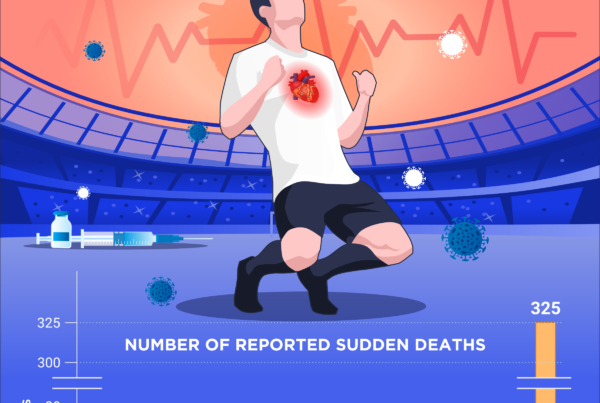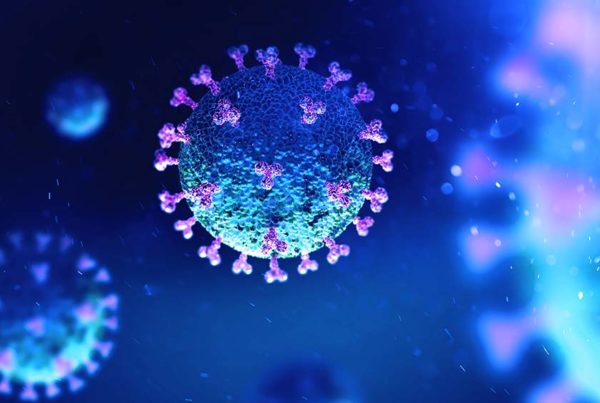
Waiting for an effective COVID-19 vaccine? Don’t hold your breath but do hold the snake oil. Being naturally proactive is the best defense.
Panic produces a buying frenzy for supplements, snake oil scams and other useless, or even harmful, items. In reality we already have an immune system that can work better than any so-called magic potion or even medical breakthroughs — if we treat it right.
My recent article about how to protect yourself from infections was popular, so here are six more natural and effective ways we can get immediate benefits to protect ourselves from infections.
Reduce electronic input
Can you catch the COVID-19 infection on social media? Of course, viruses, bacteria and other potentially infectious organisms are not transmitted digitally. However, those engulfed in social media frenzy may be more vulnerable to getting sick. In an illustration, here’s how hype and hysteria can do just that.
Don’t rely on vaccines
While I have never gotten a flu shot, the raging debate about their effectiveness misses an important point brought out in a new study. Most people may not respond well to vaccines because they are overfat. During the 2009 flu pandemic, health officials discovered that the disease was taking a particular toll on people who had excess body fat — they not only had more serious infections but more likely to spread the disease. Now researchers have found that flu vaccines are less effective in those who are overfat.
The bottom line: Excess body fat reduces effectiveness of flu vaccines. Considering that 90 percent or more of countries commonly dispensing flu shots have overfat populations. This is a significant finding. Yet, a spokesperson at the U.S. National Institutes of Health says we should get the shot even if it doesn’t work as well as we want, but didn’t offer a way to reduce body fat.
Reduce body fat and inflammation
The idea that excess body fat promotes chronic inflammation which reduces immune function is nothing new. In addition, according to the latest research, this can worsen virus symptoms, lengthen illness and make a person more contagious.
Assess vitamin D levels
Moreover, excess body fat is often associated with low vitamin D levels, also a key to great immunity. And since D is the new C when it comes to preventing colds and flu, checking vitamin D levels is an excellent way to prepare for any so-called flu season. While we know excess body fat causing chronic disease and physical impairment, it’s now clear it raises our risk for infections too.
Consider going into ketosis
The decades-old clinical observations that reducing carbohydrates, starting with eliminating junk food, can improve immunity is now being shown in animal studies.
Ketosis helps tame flu virus. Yale University’s Emily Goldberg and colleagues demonstrated that being in ketosis improved the ability to combat the flu compared to a typical diet high in carbohydrates. Ketosis can activate T cells as part of the immune system’s defense against infections. The authors state that: “This study shows that the way the body burns fat to produce ketone bodies from the food we eat can fuel the immune system to fight flu infection.” While it may be a while before this study is done on humans, you can easily test yourself to see how effective ketosis can be.
Get some aerobic exercise
Indoor gyms are closing across the country during this outbreak. Perhaps it’s time to get outside and do some aerobic exercise. While too much anaerobic training can impair your immune system, aerobic workouts improve it. Go for a walk. Or run or a bike ride at your aerobic pace using the MAF 180 Formula.
It was Hippocrates, in 400 BC, who first said, ‘Let thy food be thy medicine and medicine be thy food’, emphasizing the importance of nutrition to prevent and cure disease. Now in 2020 it might be time to take this philosophy seriously.
References
Goldberg EL, et al. Ketogenic diet activates
Sci Immunol. 2019;4(41). pii: eaav2026. doi: 10.1126/sciimmunol.aav2026.
Yan J, et al. Infectious virus in exhaled
community. Proc Natl Acad Sci USA. 2018;115(5):1081-1086. doi: 10.1073/pnas.1716561115.









